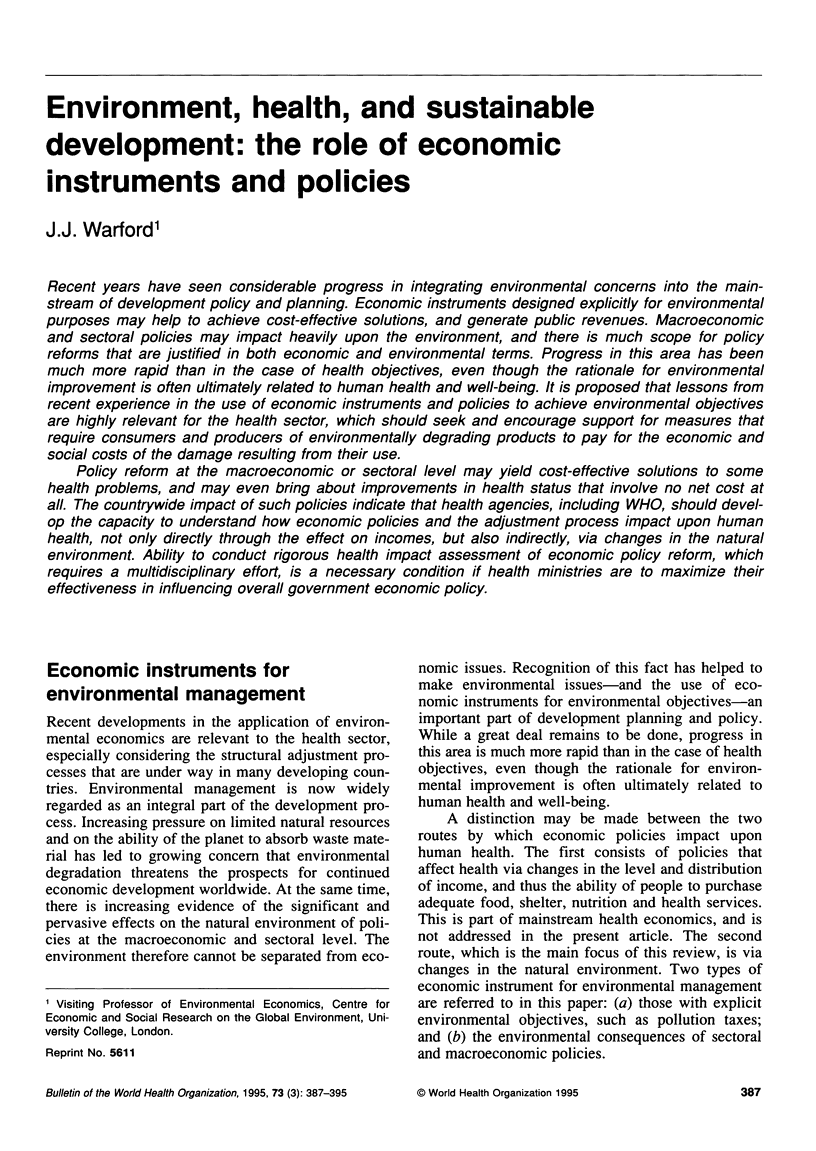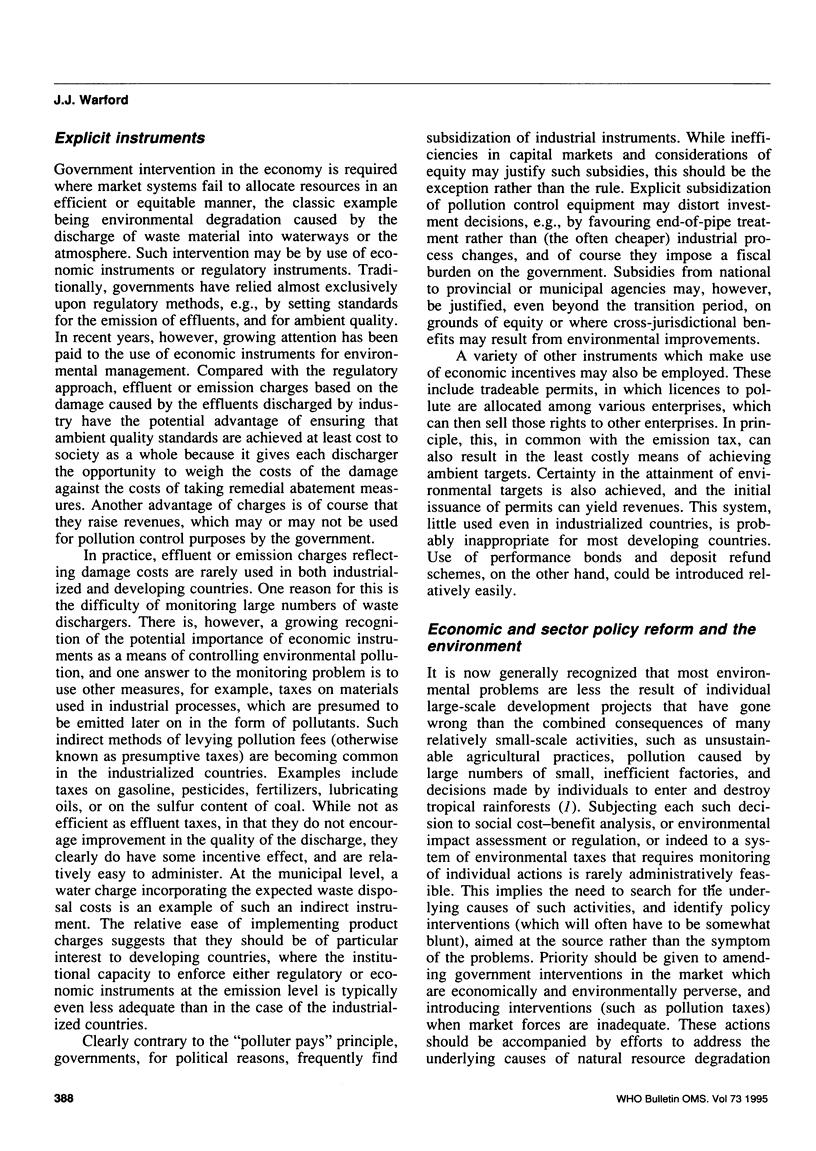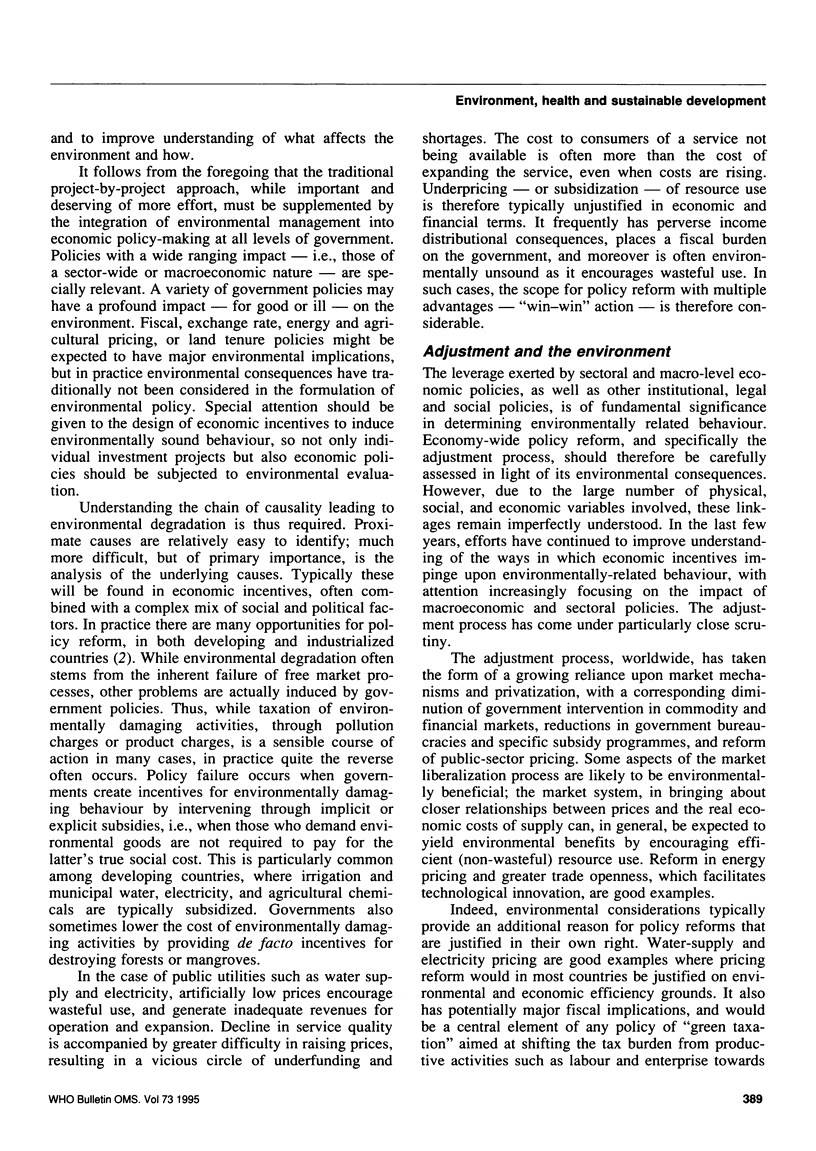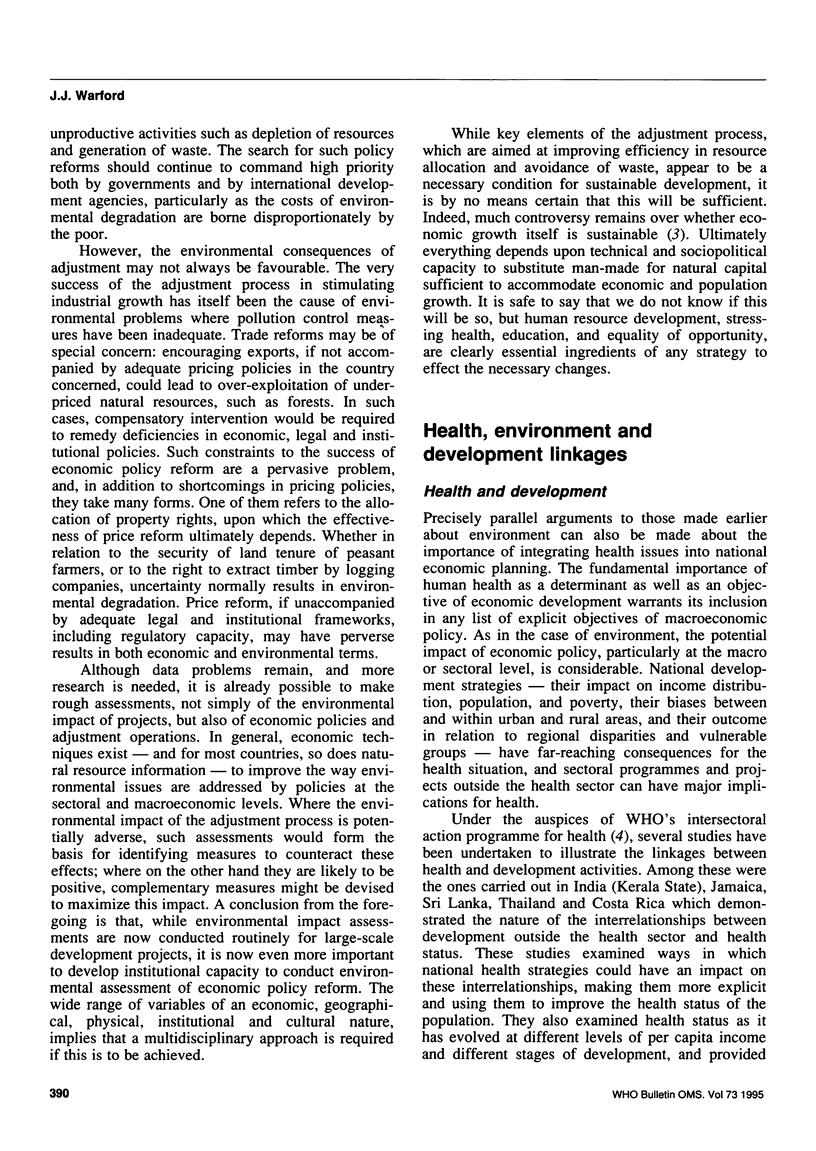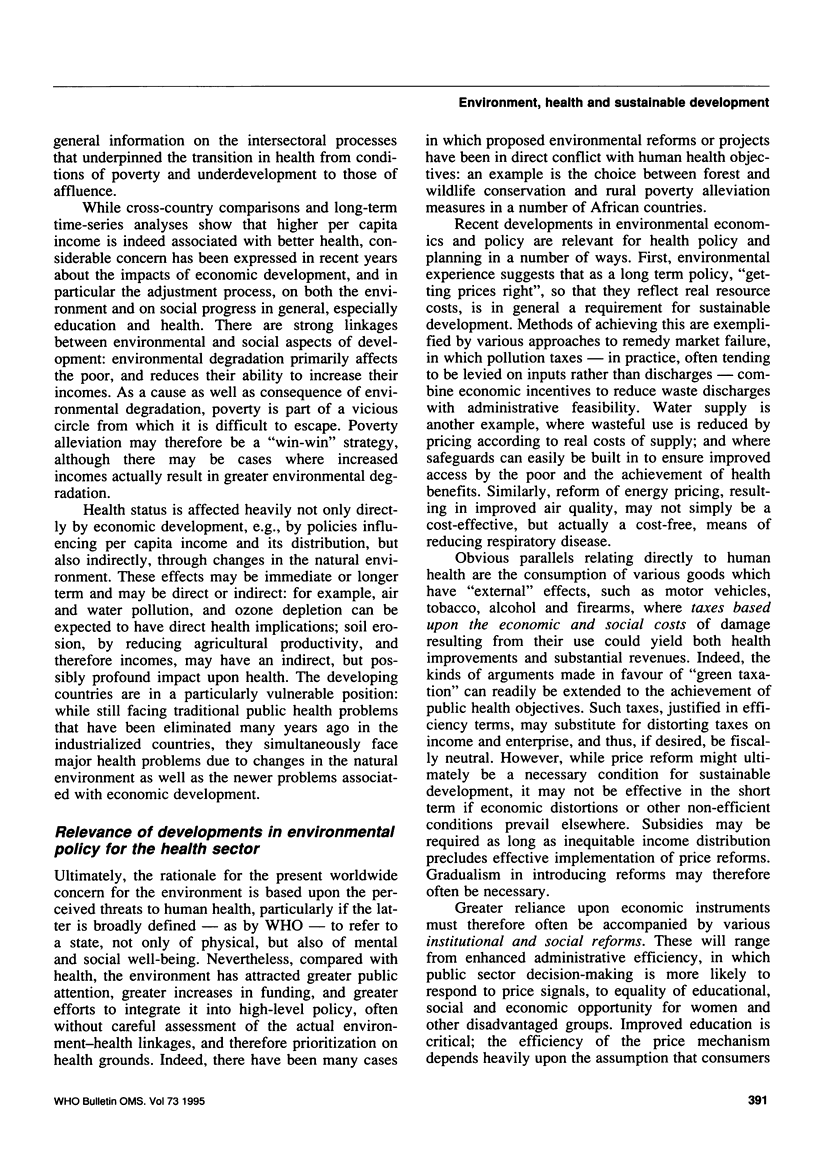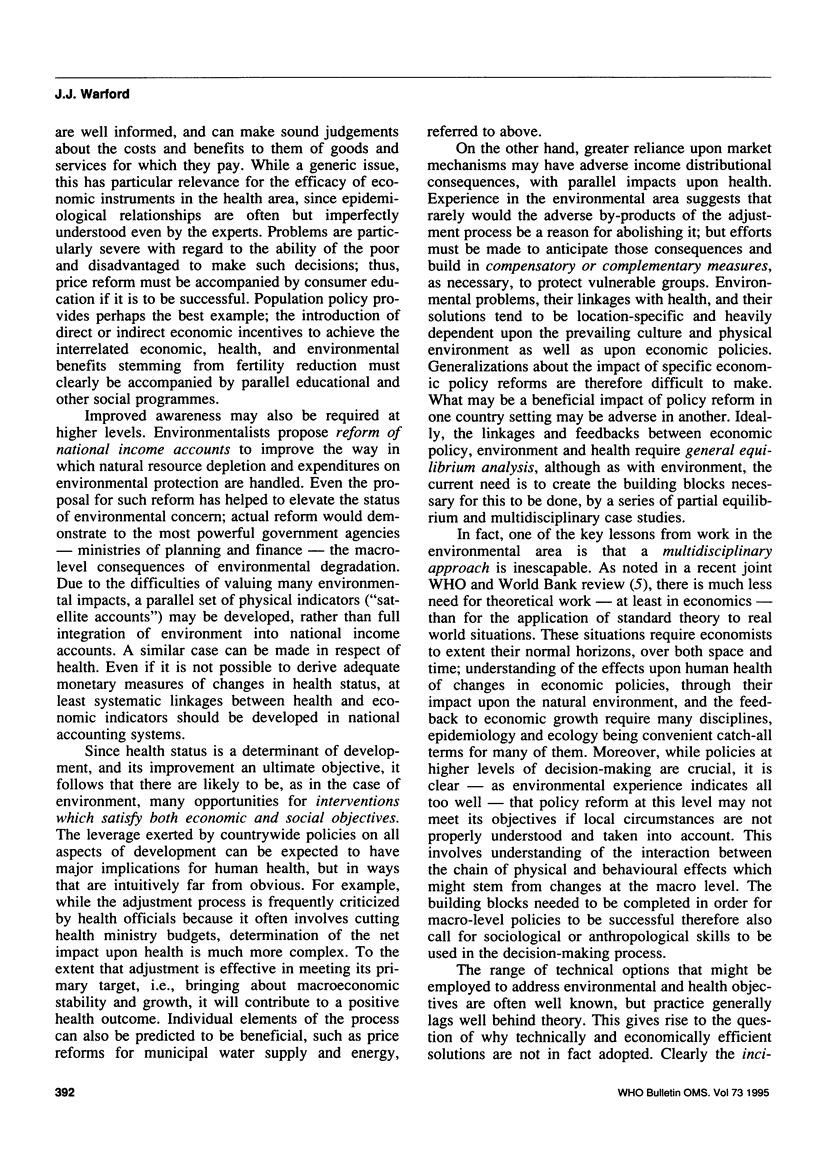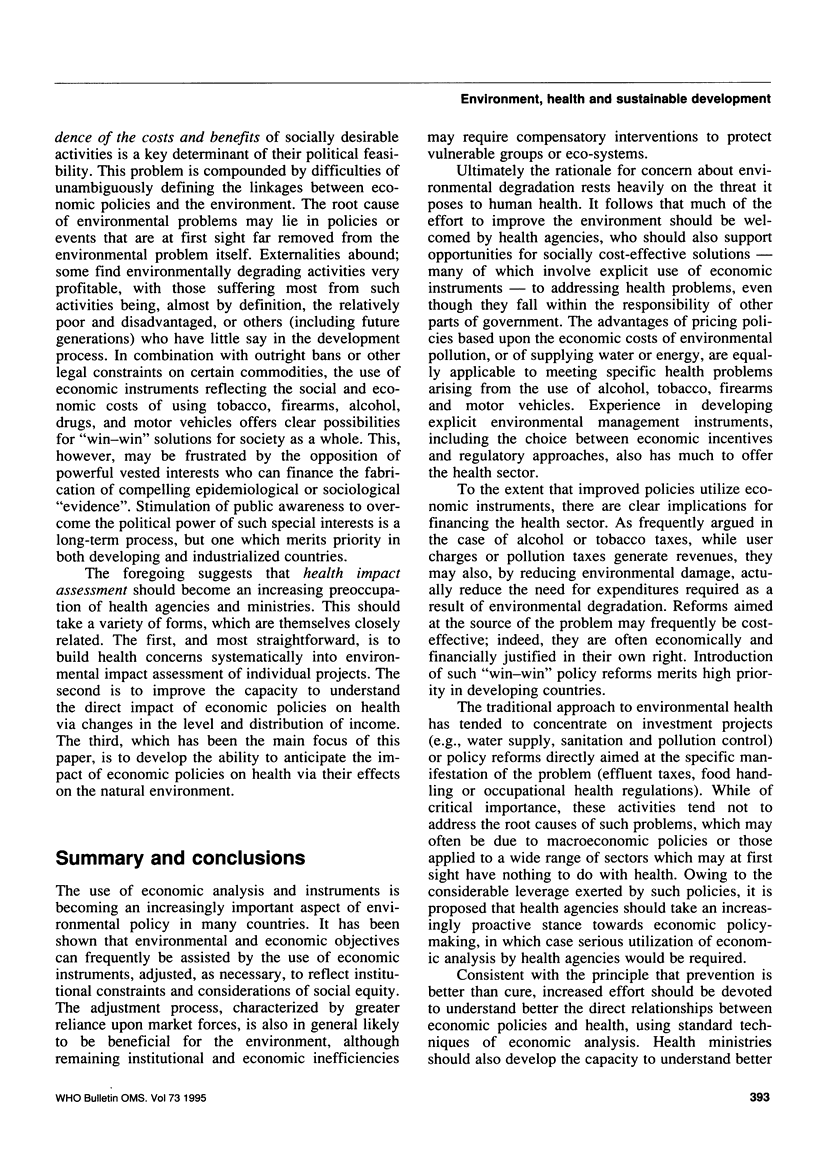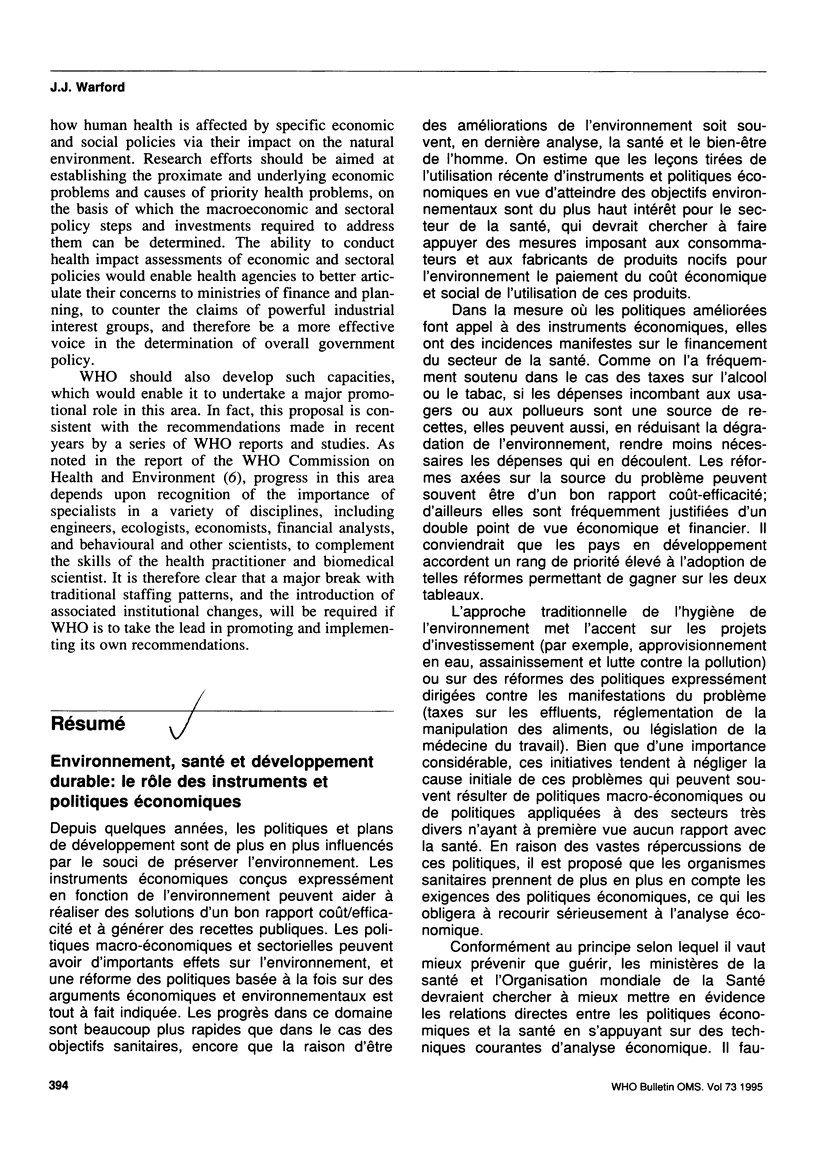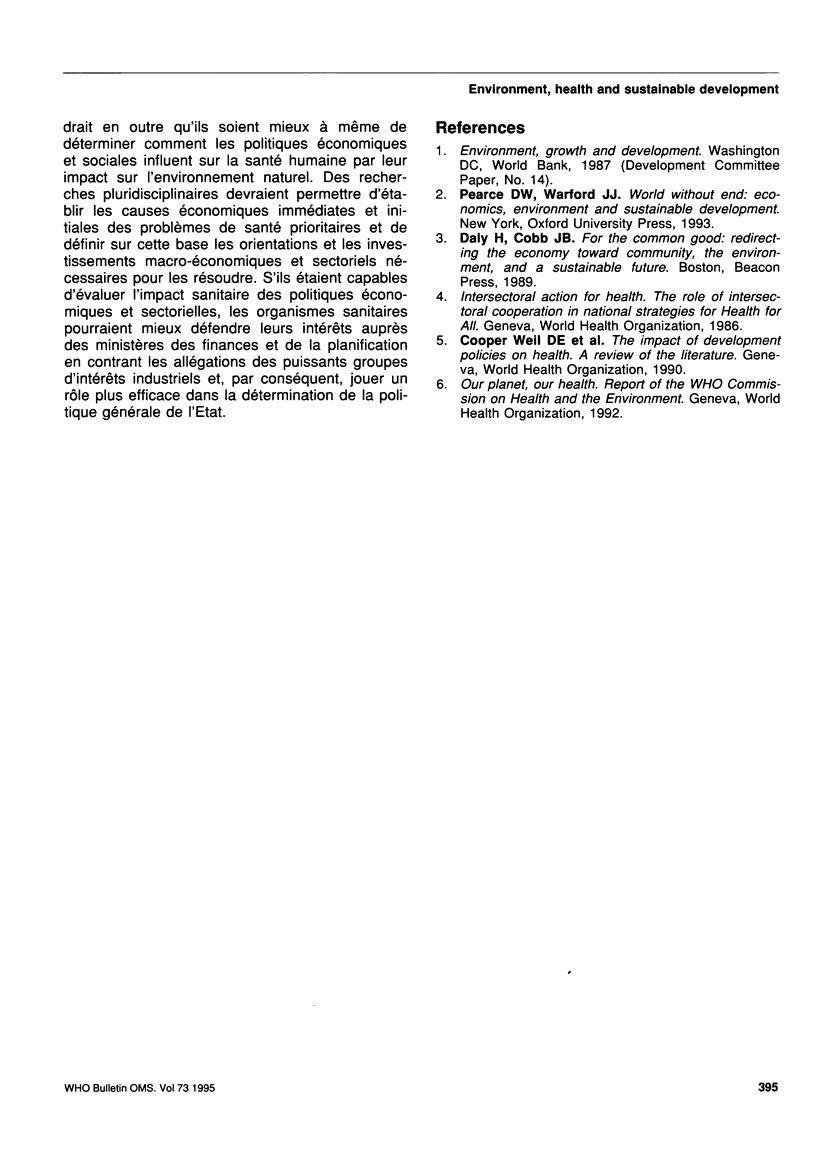Abstract
Recent years have seen considerable progress in integrating environmental concerns into the mainstream of development policy and planning. Economic instruments designed explicitly for environmental purposes may help to achieve cost-effective solutions, and generate public revenues. Macroeconomic and sectoral policies may impact heavily upon the environment, and there is much scope for policy reforms that are justified in both economic and environmental terms. Progress in this area has been much more rapid than in the case of health objectives, even though the rationale for environmental improvement is often ultimately related to human health and well-being. It is proposed that lessons from recent experience in the use of economic instruments and policies to achieve environmental objectives are highly relevant for the health sector, which should seek and encourage support for measures that requires consumer and producers of environmentally degrading products to pay for the economic and social costs of the damage resulting from their use. Policy reform at the macroeconomic or sectoral level may yield cost-effective solutions to some health problems, and may even bring about improvements in health status that involve no net cost at all. The countrywide impact of such policies indicate that health agencies, including WHO, should develop the capacity to understand how economic policies and the adjustment process impact upon human health, not only direct through the effect on incomes, but also indirectly, via changes in the natural environment. Ability to conduct rigorous health impact assessment of economic policy reform, which requires a multidisciplinary effort, is a necessary condition if health ministries are to maximize their effectiveness in influencing overall government economic policy.
Full text
PDF